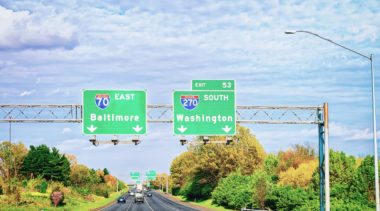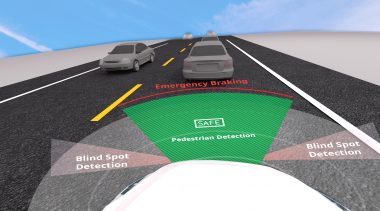Baruch Feigenbaum is senior managing director of transportation policy at Reason Foundation.
Feigenbaum has a diverse background researching and implementing transportation issues including revenue and finance, public-private partnerships, highways, transit, high-speed rail, ports, intelligent transportation systems, land use, and local policymaking. Prior to joining Reason, Feigenbaum handled transportation issues on Capitol Hill for Rep. Lynn Westmoreland.
Feigenbaum is a member of the Transportation Research Board Bus Transit Systems and Intelligent Transportation Systems Committees. He is vice president of programming for the Transportation and Research Forum Washington Chapter, a reviewer for the Journal of the American Planning Association (JAPA), and a contributor to Planetizen. He has appeared on NBC Nightly News and CNBC. His work has been featured in the Washington Post, The Wall Street Journal and numerous other publications.
Feigenbaum earned his master's degree in Transportation Planning with a focus in engineering from the Georgia Institute of Technology.
-
Telecommuting Is Helping Fight COVID-19 and Can Help Companies and Cities Over the Long-Term
A long-term increase in telecommuting could reduce greenhouse gas emissions, while also reducing government spending on infrastructure.
-
A High-Speed Rail Line From Atlanta to Charlotte Would Struggle
If high-speed rail boosters want to build an expensive train between Charlotte and Atlanta, it should be completely privately funded.
-
As Cities Seek to Regulate Scooters, They Should Avoid Picking Winners and Losers
Washington, D.C.'s recent decisions are likely to stifle competition, raise prices and hamper mobility.
-
The Misguided Efforts to Derail Maryland’s I-270 and I-495 Toll Projects
Drivers would get congestion relief, transit riders would get new high-quality bus service, and taxpayers wouldn't have to fund the projects.
-
California Would Benefit If Gov. Newsom Continues to Push for Highway Improvements
There’s no way to sugarcoat it: California’s infrastructure is in bad shape.
-
States Using Cost-Benefit Analysis Have More Efficient Transportation Systems
Unfortunately, a recent survey of state departments of transportation officials found that only five or six states systematically use cost-benefit analysis to evaluate transportation projects.
-
The Shifting Burden and Benefits of New York’s Congestion Pricing Revenue
Unfortunately, the main focus of TMRB seems to be to guarantee that congestion pricing revenue produces at least $1 billion a year.
-
Where Do Gas Taxes Go? States Divert Fuel Taxes to Schools, Police, and Fish Barrier Removal
Five states are diverting over one-third of their total fuel tax revenue to non-road uses and an additional five states diverting at least one-quarter of their gas tax money.
-
How Level 4 Automated Vehicles May Impact Other Travel Modes
Estimating how intercity car, bus and air travel might change when autonomous vehicles are a viable option.









